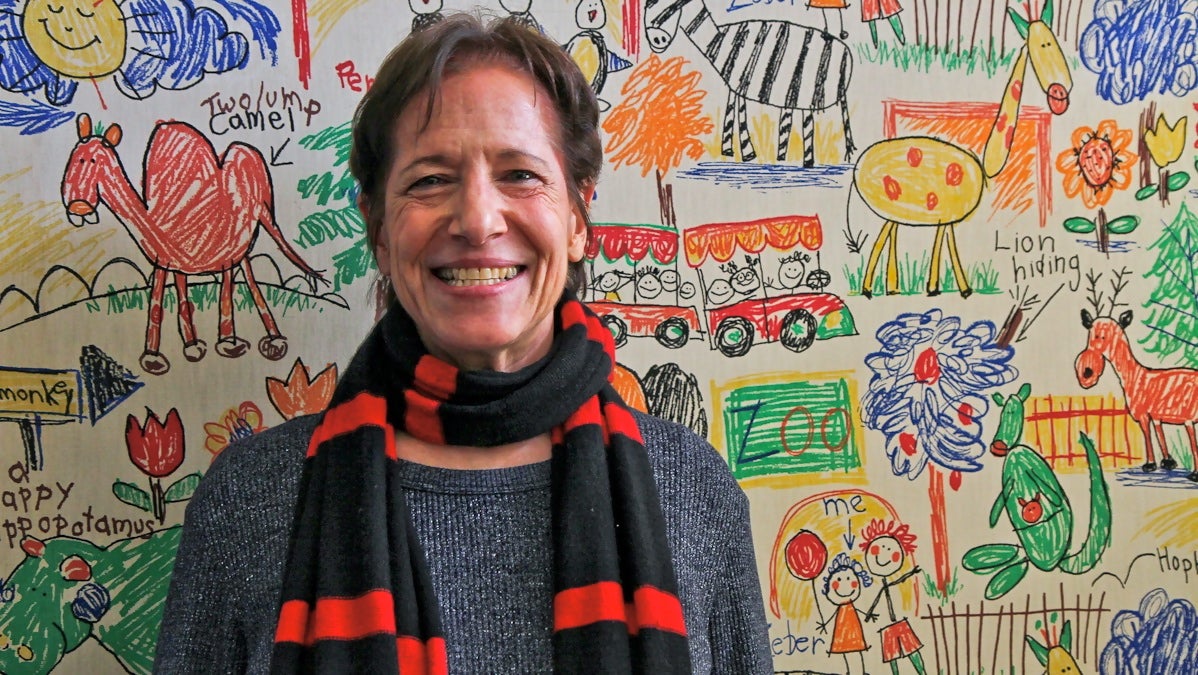Quality of words (not quantity) key to language development
Listen
Kathryn Hirsh-Pasek directs the Temple University Infant and Child Laboratory. (Kimberly Paynter/WHYY)
It’s not the quantity of words a child is exposed to at an early age, but the quality of those words that may be key in his or her development.
That’s according to new research from Temple University psychology professor Kathryn Hirsh-Pasek. Researchers and educators realized in the 1990s that children from wealthier families hear about 30 million more words than kids from lower income families by the time they turn 3, she said.
“When you hear a gap that’s so large, 30 million words, what are you going to do? Well your first guess is to start pouring words into the empty head of the young child,” said Hirsh-Pasek.
That’s led to a focus on exposing kids to more words in order to help improve language skills and “fill that word gap.” But when Hirsh-Pasek’s group studied the language skills and parental interactions of 60 children a varying language levels at age two and then three, she found that the quality of words, including interaction and engagement, had a much greater role in their development.
The implications are huge, she said, in terms of how caregivers and families promote language. Instead of a one-sided “monologue” of talking to a child, she said people should engage in a “conversational duet.”
“You have to let your child have a turn, and it has to go back and forth and back and forth,” said Hirsh-Pasek. “And in those exchanges, we establish a common ground for learning that’s going to serve us well throughout life.”
Hirsh-Pasek recently presented her findings at a special White House summit, but the study has yet to be published.
The next step will be to study the approach in interventions. Hirsh-Pasek says that’s already in the works, and participants include the Maternity Care Coalition in Philadelphia.
Tune in to The Pulse this Friday at 9 a.m. for an extended version of this story.
WHYY is your source for fact-based, in-depth journalism and information. As a nonprofit organization, we rely on financial support from readers like you. Please give today.

